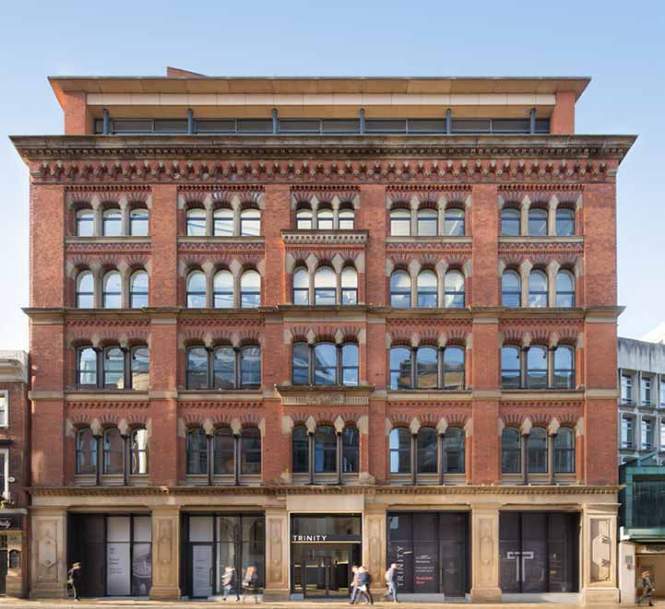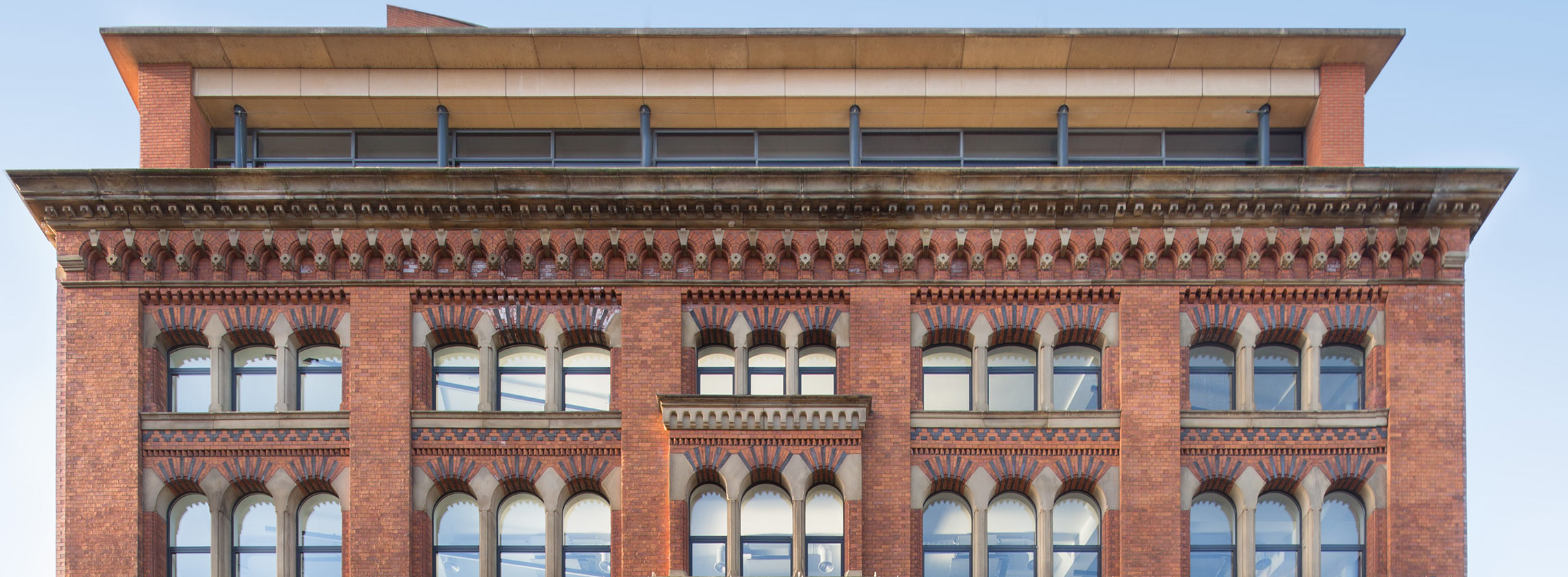Manchester has seen the highest first-half take-up figures on record, while available office supply continues to fall and is currently at its lowest recorded level
Best first-half take-up figures on record
Total take-up exceeded H1 2018 by 7% and the five-year average by 32%.
During the first half of 2019 total take-up in Manchester city centre reached 806,024 sq ft; 419,932 sq ft of this was for Grade A space accounting for 52%.
There has been activity from a variety of sectors with significant activity from Serviced Offices (25%), Tech, Media & Telecoms (24%) and Professional (10%). Serviced office providers: Spaces, WeWork and Huckletree have all taken space in Manchester city centre during H1 2019 signing for a combined 198,692 sq ft of space.
Savills forecasts that Manchester city centre will see total take-up in excess of 1.4 million sq ft by the end of 2019, with a significant proportion of this being for Grade A space. Total office supply in Manchester city centre currently sits at 1.8 million sq ft, reflecting enough supply to meet the demand for 1.3 years of average take-up. It is also a 7% decrease since the end of 2018.
Grade A availability currently sits at just 340,000 sq ft, suggesting that there is only enough available office supply in Manchester city centre to meet expected demand for eight months of Grade A take-up. However, an additional 850,000 sq ft of available new build Grade A space is due to come to the market over the next two years.
During the first half of 2019 prime rents in Manchester city centre reached £36 per sq ft a 6% increase since the end of 2018. However, Q3 has already seen rents of £36.50 per sq ft being achieved, firmly securing Manchester the highest achieved rents of the big six regional office markets.
To date, January 2019 – early September 2019, Manchester has seen office investment volumes restricted to a total of just £76 million, being predominantly driven by nominal volumes in H1. In Q3 2019 volumes have reached £44 million, already exceeding H1 2019 by £12 million. There remains strong investor demand for both core and value add office opportunities, both of which are in short supply. UK property companies have been particularly active in Q3, accounting for 68% of volumes to date. Topland Group acquired both Elliot House and The Chancery during this quarter for a combined £30m. We expect Manchester’s office investment volumes in the second half of the year to be significantly up from the first half. Prime yields currently remain stable at 4.75%.
Greater Manchester’s economic growth story

Trinity, Manchester. Currently 57,000 sq ft available, Savills are acting on behalf of landlord Helical. Photographed by Paul Karalius.
The economy in the North West is expected to grow at 2.1% in 2019 – making it the fastest growing UK region this year.
One of Manchester’s biggest strengths is that its economic growth isn’t reliant on one sector and has been driven by a diverse industry base. The city is forecast to grow at a rate of 14% over the next five years, well ahead of the UK average of 11%. Additionally, Manchester has attracted more foreign direct investment in the past decade than any other city outside of London and is home to over 2,000 foreign-owned companies.
Manchester has attracted more foreign direct investment in the past decade than any other city outside of London and is home to over 2,000 foreign-owned companies
Savills Research
Manchester is expected to see 11.8% of office employment growth in the next five years. This growth will be helped by Greater Manchester having one of the largest creative and digital clusters in the UK, employing 63,500 people and generating GVA of £3.1 billion each year. New research from global innovation foundation, Nesta has revealed that the creative sector in Manchester (spanning everything from architecture, publishing, design, advertising to film, IT and digital) is growing faster than any other region in the UK apart from London. We expect employment in this sector to grow by 16% over the next five years (10% over the last five years) outperforming all other regional cities.
The serviced office sector has also become a crucial component of the Manchester office market, and has seen the greatest levels of growth of all the regional cities, accounting for 31% of total regional serviced office take-up during H1 2019. The main driver of this is WeWork who have opened four sites in Manchester with a fifth being launched early next year, whilst the Regus brand ‘Spaces’ has acquired 120,000 sq ft at 125 Deansgate in H1 2019.
Fashion tech companies are also big business in this city. Pretty Little Thing, the Manchester-based online retailer, has been ranked as the fastest growing fashion brand on the web.
The vibrant creative sector means new employment opportunities are now there for the taking. The city already retains 60% of its graduates and businesses continue to forge strong links with the education sector to take full advantage of the best young talent available.
Manchester has also become home to a thriving tech sector and is worth an estimated £2.9bn, employing 83,000 people, and accounting for 35% of commercial property in the city. With this in mind, the city also has a number of large developments being marketed to tech companies including Circle Square, a new neighbourhood adjacent to the universities in Manchester city centre and has produced as many unicorns ($1bn tech companies) as Amsterdam.
The North West is headquarters to tech companies including boohoo, Booking.com and AO.com, as well as privately owned The Hut Group. Amazon also has a large presence in Manchester.
